Matchesfashion's experiential five-storey townhouse opens in London's Mayfair
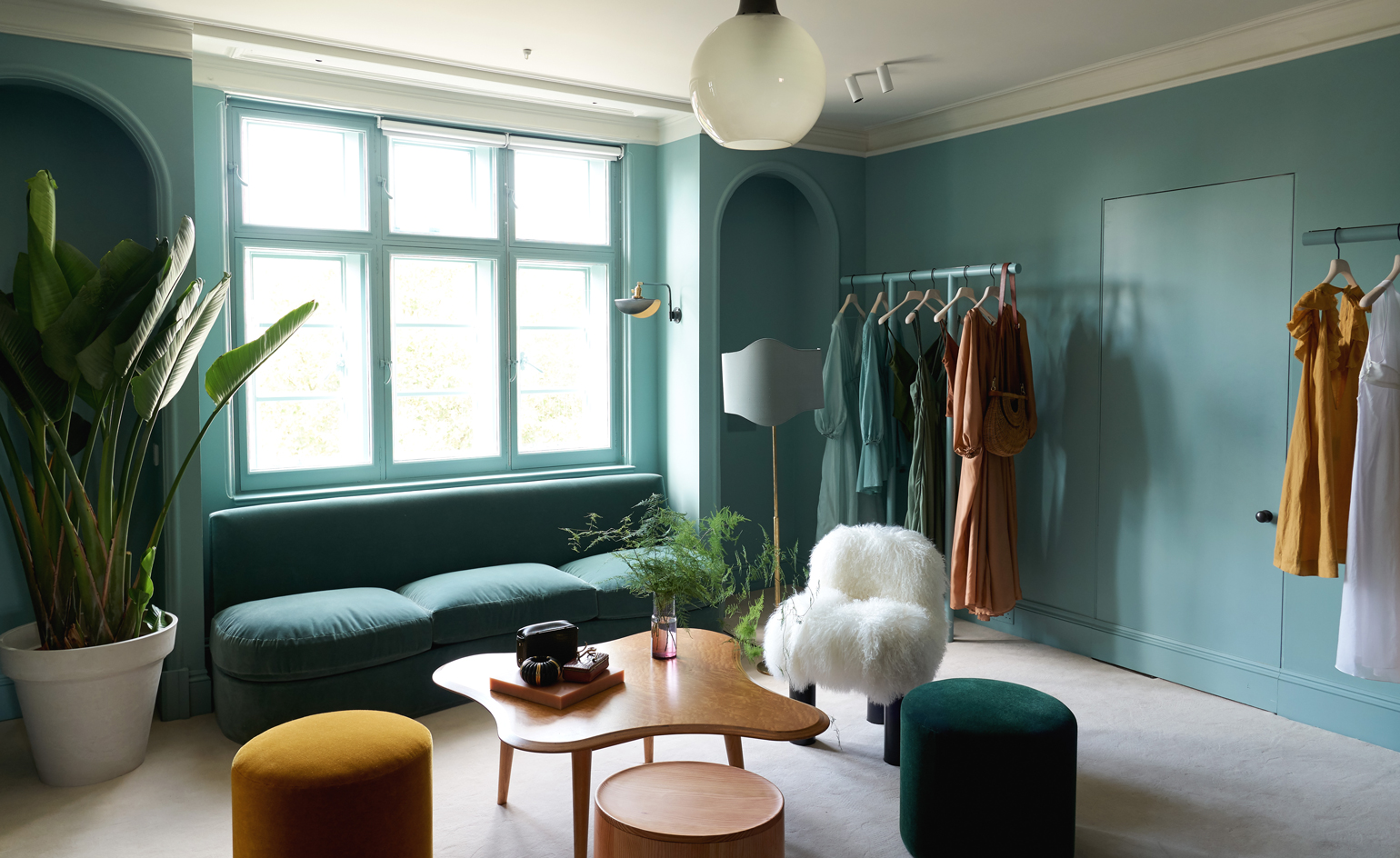
The rise of e-commerce has made retail therapy as private a gratification as other digital distractions. It is also tearing into the foundations of traditional bricks-and-mortar stores, with household names permanently shuttering. But something interesting is happening in the world of In Real Life retailing, as operations born online are steadily opening bricks-and-mortar spaces.
Disruptors including eyewear brand Warby Parker, luggage start-up Away and even Amazon now have physical retail stores. All have decided that stores are not just a place to make purchases, but to experience the brand, as well as touch and feel the product. ‘The store is often the first point of discovery,’ says Sucharita Kodali, vice president and principal analyst at retail research company Forrester. ‘It’s often how people fall in love with the things they ultimately buy online.’ For these digital-first brands then, it makes sense to build a physical footprint, she explains. Traditional retailers are playing catch-up in response.
According to Eventbrite, 78 per cent of today’s millennials in the US say that they would rather spend money on experiences than products. So, in a bid to drive people into stores, there is an increasing push from retailers to turn stores into event spaces offering everything from talks to yoga classes and creative workshops.
Matchesfashion’s latest store, opening 3 September at 5 Carlos Place, a prime pitch in London’s Mayfair, takes that idea to a new level. Housed in a grand five-storey townhouse, elegantly refitted to allow shopping, live events and art exhibitions, the store also features in-built recording facilities, a fully functioning kitchen and a courtyard garden. The first two floors will be open to the public, featuring retail spaces in a state of constant churn, with total product refreshments every two weeks. Crucially, much of it will be exclusive to the store. Sometimes that will look like a full brand takeover, like a collaboration with Prada this week, bought to life by set designer Robert Storey, or the vision of specific curators. Names confirmed so far include auction house Phillips and designers Hillier Bartley and Grace Wales Bonner.
Those floors will also stock the company’s new homewares line, delivered in monthly drops throughout the year, while the opening events programme includes a Phaidon book signing planned with Kate Moss and Mario Sorrenti, a floristry masterclass with Scarlet & Violet, and a series of talks on sustainability during London Fashion Week. Meanwhile, upstairs are two floors dedicated to appointment-only private shopping and advice from in-house stylists, and an attic that houses the broadcasting space for the brand’s podcast, pop-up cafés and further events, including supper clubs with chefs such as Skye Gyngell.
‘The house becomes a place where there’s a full experience every second of the day. Everything is built around the lifestyle of the luxury consumer,’ says Ulric Jerome, CEO of Matchesfashion. What makes this an interesting move is that the brand considers itself an e-commerce company first. Today, despite having four stores and a private shopping townhouse in London, 95 per cent of its sales are made online, 82 per cent of which are from outside of the UK. To put that into context, only 9 per cent of luxury goods sales worldwide are generated through e-commerce, according to management consultancy firm Bain & Company.
Matchesfashion started out in 1987 as plain old analogue Matches with a single boutique in Wimbledon Village in south London. But with the digital era came big change. In 2013, it changed its name to Matchesfashion as a clear signal of its intent and as a strategic pivot.
Its latest results show revenues up 44 per cent year-on-year to $394m, driven mostly by international growth. In September 2017, it also hit the headlines when funds advised by Apax Partners acquired a majority stake in the company, valuing it at a reported $1bn, making it one of the UK’s few unicorns (a start-up valued at more than $1bn).
While it is the online drive that is really powering Matchesfashion forward, the business remains bullish on bricks and mortar, explains Jerome: ‘There’s no such thing as digital versus physical. It’s really combined. We just call it commerce. It’s just how you make it work together.’
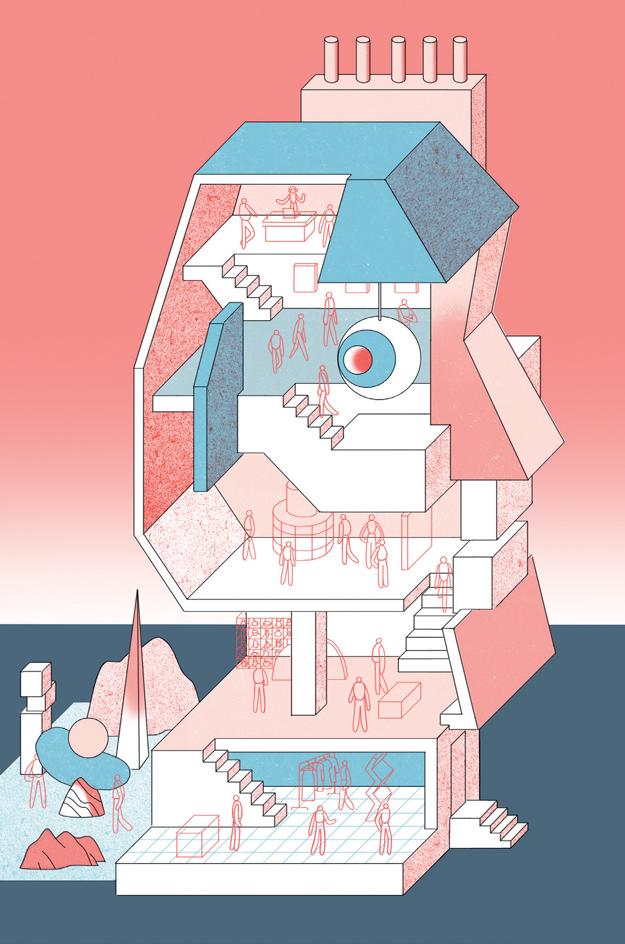
Illustrator: Jun Cen
As Tim Kobe, founder and CEO of strategic design firm Eight Inc, and the original designer of the Apple store concept, says: ‘The old days of putting your wares on a shelf and selling through is going away. With any business, your biggest challenge is being relevant and presenting what you have in an interesting and compelling way – in a way that is sincere with people.’
For Matchesfashion, that means a commitment to content, in-store and pushed out to its online audience. All of the Carlos Place store’s events will be streamed live on the website and available thereafter, enabling anyone to tune into what’s happening. ‘We want it to be very inclusive, so it’s totally available through technology,’ says Jerome. The company already knows this digital push pays dividends: 35 per cent of all the firm’s revenue is driven by customers who have interacted with a piece of content, such as blog posts, on its website or in its app.
The company tested streaming live events in 2017 when it celebrated its 30th anniversary, with pop-up stores featuring different experiences over five days each in Paris, San Francisco, New York and Los Angeles. The initiative reached 1.27 million people through the Facebook Live stream alone.
Apple, the world’s most successful bricksand- mortar retailer in terms of sales per square foot, and by a good distance, has clearly provided inspiration. While other retailers have experimented with experiences in stores, Apple raised the bar in 2017 with the launch of Today at Apple, which sees thousands of events held worldwide every week.
Kobe says Apple has always been about connecting with culture and with shoppers as human beings not just transactions, which is ultimately what Matchesfashion is trying to do too. ‘The future of retail is the future of human interactions; understanding what people are doing and how they’re interacting with one another,’ he explains. That focus on humans is particularly interesting at a time when technology is such a central focus of the store of the future, with brands such as Burberry and Rebecca Minkoff grabbing endless headlines for introducing magic mirrors and connected fitting rooms to facilitate purchasing decisions.
While technology plays a central part in what Matchesfashion is doing too, Jerome insists it’s only ever behind the scenes. ‘I really believe that in-your-face tech in a store doesn’t work. In reality, what we see is that the more people get digitalised, the more they want one-to-one conversations, and the more the personal touch gets very important. Our customers are telling us that everyday.’ So tech will be there, but not visibly, he notes, in the form of a clientele app and an artificial intelligence system to drive relevant discovery around content. But all of it is with the intention of better serving the customer.
As Kodali of Forrester explains: ‘Helpful, knowledgeable humans just get things done quickly and create a pleasant experience for shoppers. We’ll never replace that. We may use technology to augment that, but the human touch continues to be a critical part of customer experience.’
Indeed, Carlos Place is designed to feel as human as possible for that reason, too. ‘It will feel like you’re entering your friend’s house – it’s magnificent but very cosy and warm,’ adds Jerome. Philip Joseph, who also designed Erdem’s flagship store in Mayfair, is behind the redesign. Original features, including a sweeping staircase, wood panelling and terracotta tiled flooring, all remain.
‘The human side of all that we’re doing is so important. The one common thing is providing a personal approach to luxury shopping,’ says Jerome. With that, however, also comes increasing demands from shoppers. The digital era has brought with it an expectation of instant gratification, and Matchesfashion has been answering that since 2016. Wake up in London on any day of the week and you can have a wardrobe freshener delivered to your doorstep within 90 minutes of placing an order. Those booking appointments in Carlos Place also have access to this service, with items arriving within the same timeframe ready for trying on. Jerome refers to it as a concierge service that will make life easier for clients.
What’s interesting, then, is that the store of the future in Matchesfashion’s eyes is not about technology at all, but about servicing an ever-savvy consumer in the market for experiences, exclusive products and the ultimate in convenience. All under one roof. Or, indeed, online.§
A version of this article originally featured in the September 2018 issue of Wallpaper* (W*234)
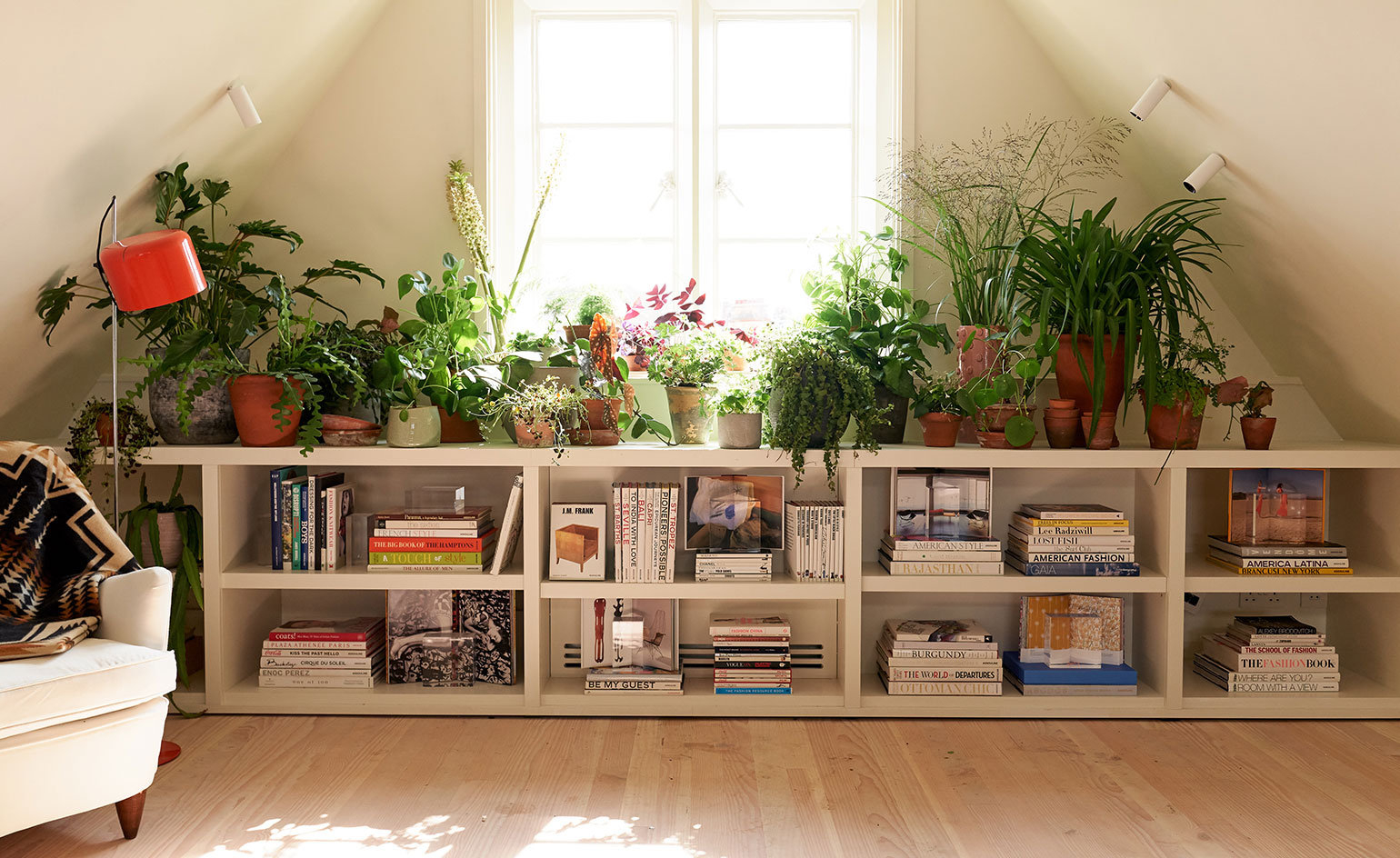
The ‘Attic’ at Matchesfashion's 5 Carlos Place.
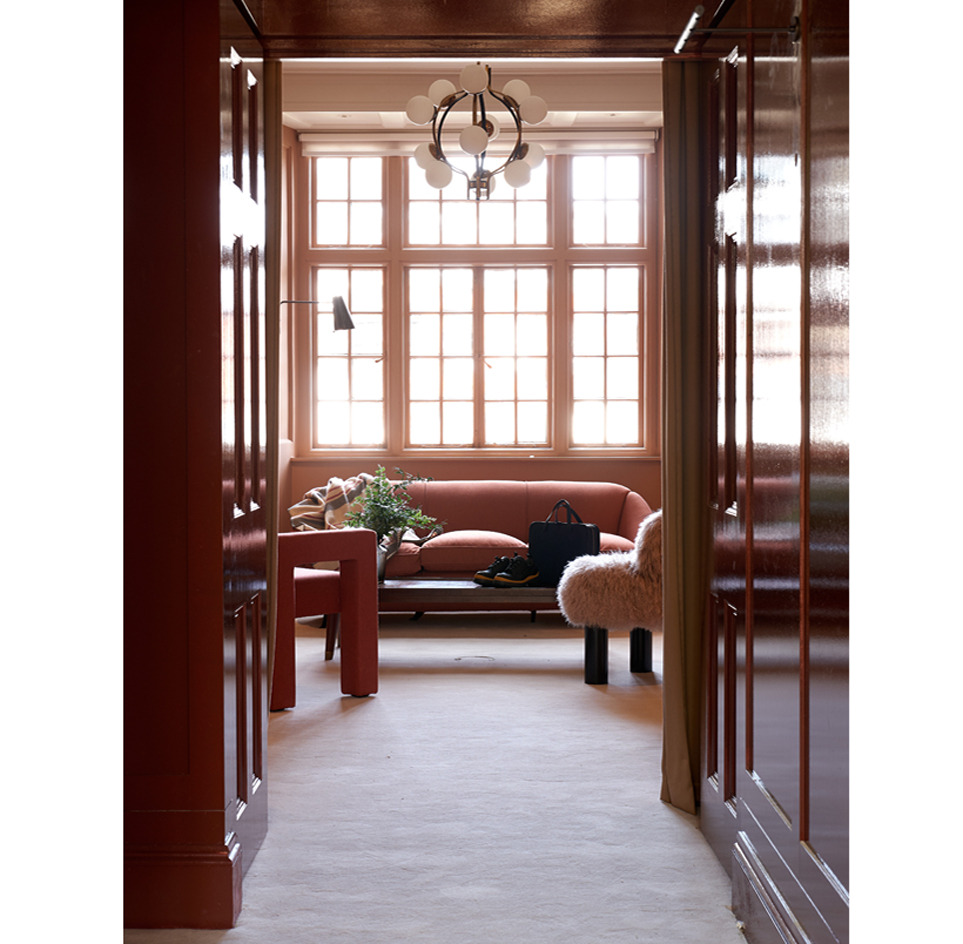
One of Matchesfashion's private shopping suites at 5 Carlos Place.
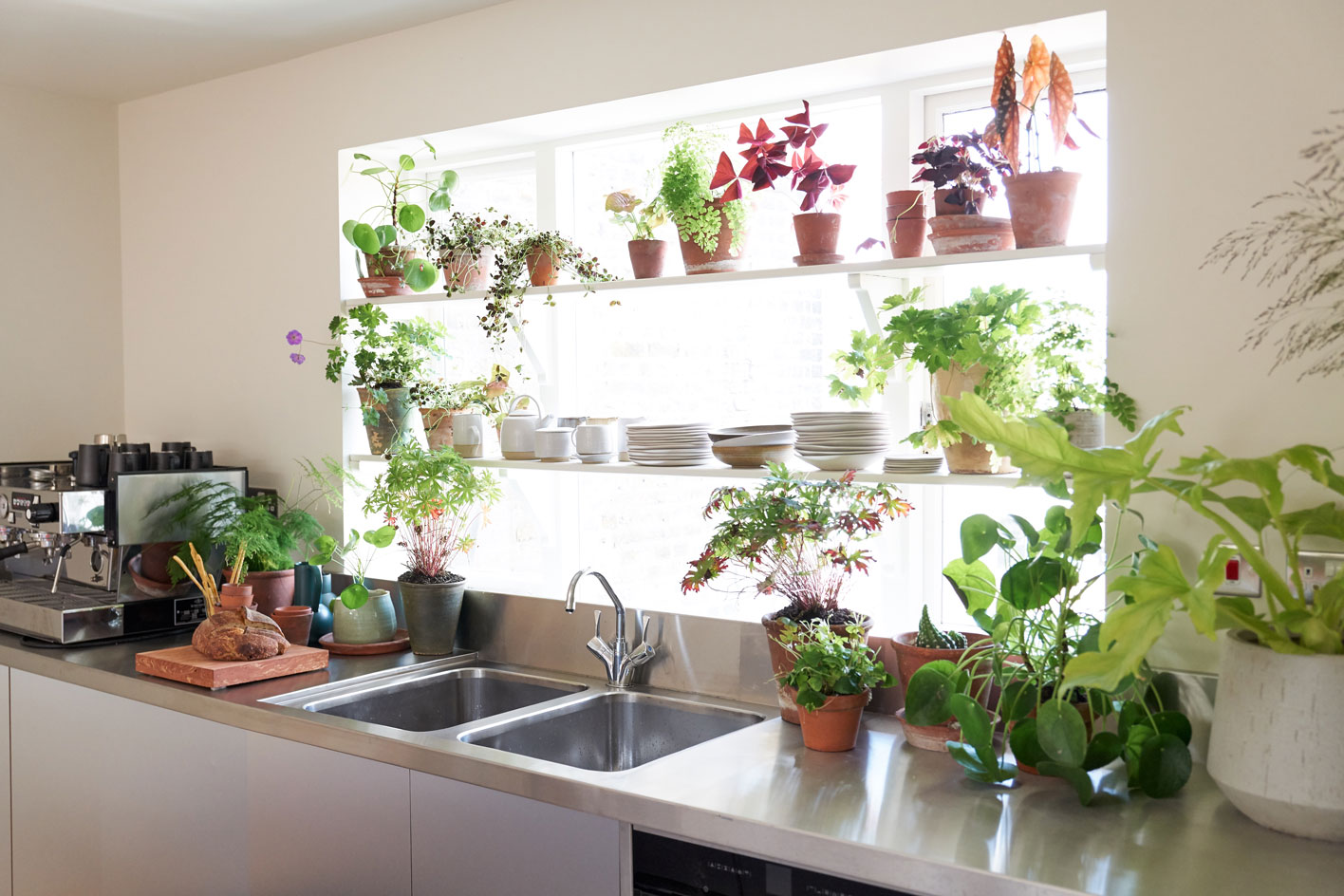
The ‘Attic’ at Matchesfashion's 5 Carlos Place.
INFORMATION
For more information, visit the Matchesfashion website
Receive our daily digest of inspiration, escapism and design stories from around the world direct to your inbox.